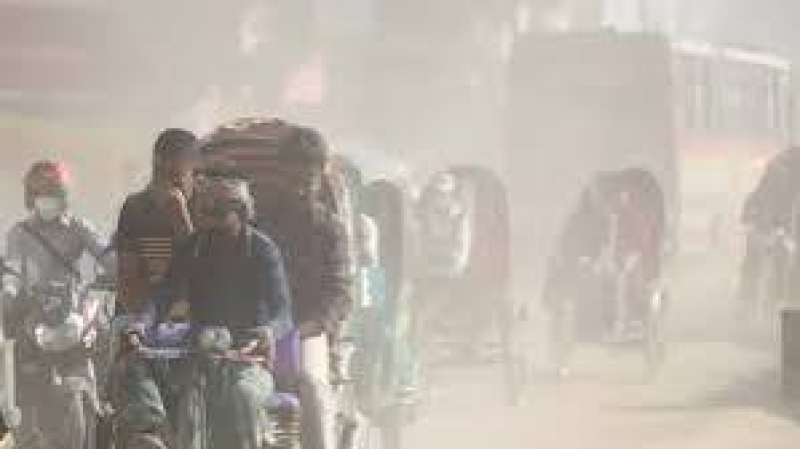- Tarique leaves for 300 feet area from airport |
- BNP top leaders welcome Tarique Rahman on homecoming |
- Flight carrying Tarique, family lands in Dhaka |
- Red bus with ‘Bangladesh first’ slogan ready at Dhaka airport for Tarique |
- Flight carrying Tarique, family lands at Dhaka Airport |
Dhaka’s air quality unhealthy for sensitive groups

Dhaka’s air quality is ‘unhealthy for sensitive groups’ this morning.
Dhaka has ranked 11th on the list of cities worldwide with the worst air quality with an AQI score of 107 at 8:54 am.
India’s Delhi, the United Arab Emirates’ Dubai and Indonesia’s Jakarta occupied the first, second and third spots on the list, with AQI scores of 197, 181 and 173 respectively.
When the AQI value for particle pollution is between 101 and 150, air quality is considered ‘unhealthy for sensitive groups’, between 150 and 200 is ‘unhealthy’, between 201 and 300 is said to be 'very unhealthy', while a reading of 301+ is considered 'hazardous', posing serious health risks to residents, reports UNB.
The AQI, an index for reporting daily air quality, informs people how clean or polluted the air of a certain city is and what associated health effects might be a concern for them.
The AQI in Bangladesh is based on five pollutants: particulate matter (PM10 and PM2.5), NO2, CO, SO2, and ozone.
Dhaka has long been grappling with air pollution issues. Its air quality usually turns unhealthy in winter and improves during the monsoon.
Air pollution is increasingly impacting human health - and is now the second leading global risk factor for premature death, according to the State of Global Air (SoGA) report published in partnership with the UN Children’s Fund (UNICEF) in June 2024.
The fifth edition of the report revealed that air pollution caused 8.1 million deaths worldwide in 2021 and many millions are dealing with debilitating chronic diseases.
In 2021 alone, air pollution was responsible for over 235,000 deaths in Bangladesh, highlighting a significant public health challenge.
The report found that children under five are especially vulnerable, with health effects including premature birth, low birth weight, asthma, and lung diseases.

